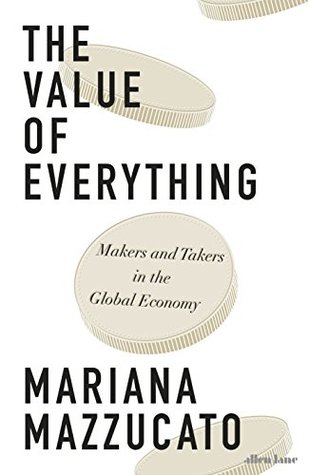More on this book
Community
Kindle Notes & Highlights
Read between
December 22, 2020 - January 17, 2021
Today the issue is not just the size of the financial sector, and how it has outpaced the growth of the non-financial economy (e.g. industry), but its effect on the behaviour of the rest of the economy, large parts of which have been ‘financialized’. Financial operations and the mentality they breed pervade industry, as can be seen when managers choose to spend a greater proportion of profits on share buy-backs – which in turn boost stock prices, stock options and the pay of top executives – than on investing in the long-term future of the business. They call it value creation but, as in the
...more
What definition of value is used to distinguish value creation from value extraction, or even from value destruction?
Value can be defined in different ways, but at its heart it is the production of new goods and services. How these outputs are produced (production), how they are shared across the economy (distribution) and what is done with the earnings that are created from their production (reinvestment) are key questions in defining economic value.
By ‘value creation’ I mean the ways in which different types of resources (human, physical and intangible) are established and interact to produce new goods and services. By ‘value extraction’ I mean activities focused on moving around existing resources and outputs, and gaining disproportionately from the ensuing trade.
Doing ‘hard’ things means being willing to explore, experiment, make mistakes and to learn from those mistakes.
After all, if we cannot dream of a better future and try to make it happen, there is no real reason why we should care about value. And this perhaps is the greatest lesson of all.


